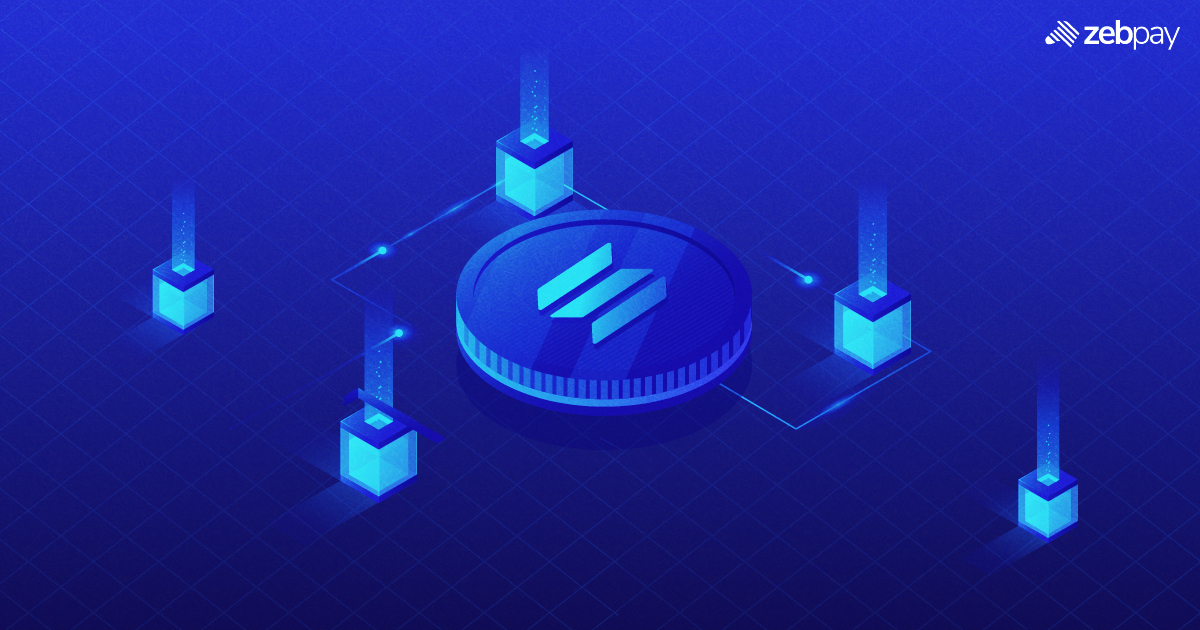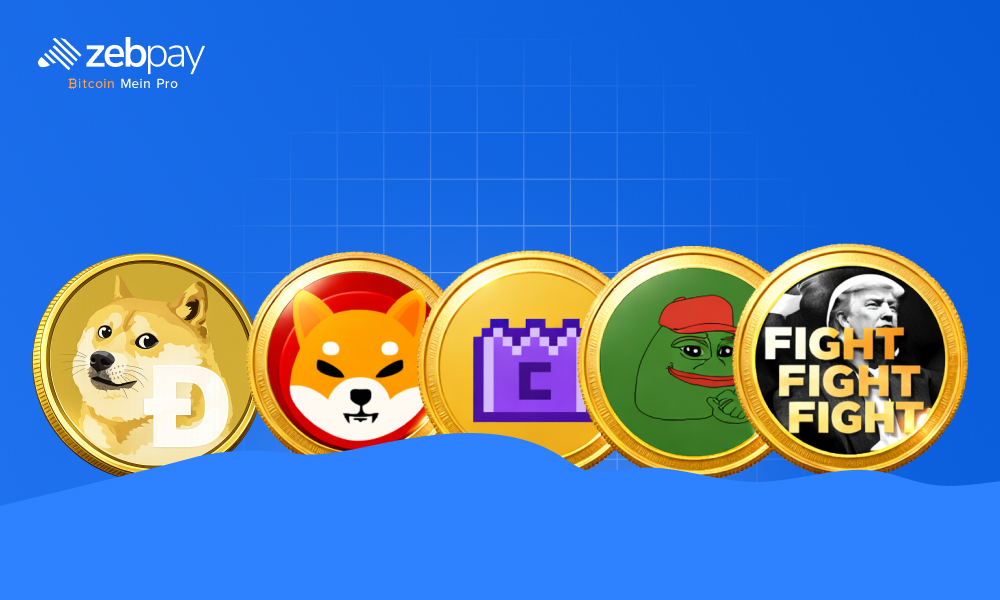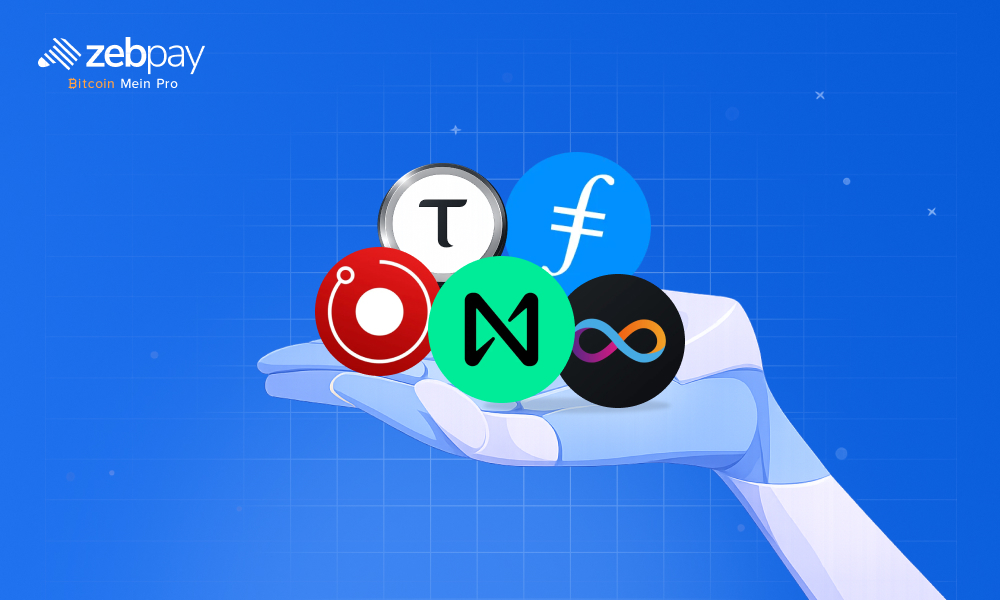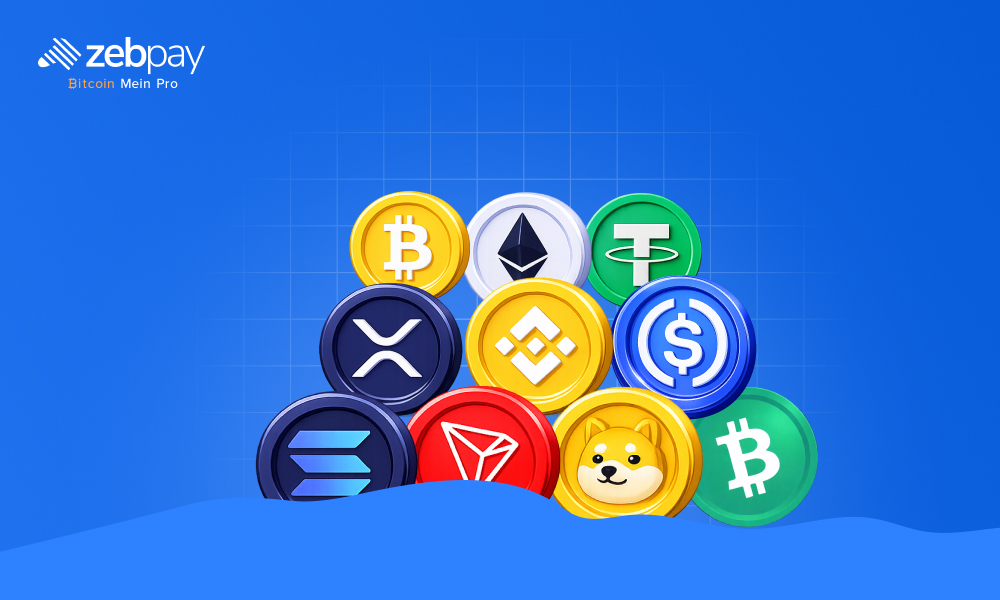The Solana ecosystem tokens represent a diverse and innovative range of digital assets within the Solana blockchain network, each serving unique functions and purposes. These tokens play a crucial role in various aspects of decentralised finance (DeFi), NFT marketplaces, decentralised fundraising, liquidity provision, and asset bridging across different blockchains. From transformative tokens like Solanium (SLIM) facilitating decentralised fundraising to groundbreaking tokens like Metaplex (MPLX) revolutionising NFT marketplaces, the Solana ecosystem tokens offer a vibrant landscape of opportunities for investors, developers, and users alike.
Read more: What is Solana (SOL)
Top 10 Solana Ecosystem Tokens of 2025
Let us dive into the diverse Solana ecosystem and see 10 performing tokens in 2025:
| Token | Current Price | Market Capitalisation |
| Pyth Network (PYTH) | $0.3358 | $1.21 billion |
| Jupiter (JUP) | $0.8186 | $1.1 billion |
| The Graph (GRT) | $0.2061 | $1.96 billion |
| Injective (INJ) | $21.4 | $2.11 billion |
| Chainlink (LINK) | $19.93 | $12.71 billion |
| Render (RNDR) | $7.23 | $3.74 billion |
| Bonk (BONK) | $0.00002807 | $2.14 billion |
| Star Atlas (ATLAS) | $0.003062 | $54.22 million |
| Akash Network (AKT) | $3.09 | $767.79 million |
| Solana (SOL) | $191.2 | $92.49 billion |
Pyth Network (PYTH)
The Pyth Network stands out as the premier and rapidly expanding first-party Oracle network. It provides instantaneous market data to financial decentralised applications (dApps) across more than 40 blockchains and offers over 380 low-latency price feeds covering crypto assets, equities, ETFs, FX pairs, and commodities.
Comprising major exchanges, market makers, and financial service providers globally, the network sources price data for smart contracts. Notable participants like Binance, OKX, Jane Street, Bybit, Cboe Global Markets, and others contribute to the Pyth oracle program, ensuring data accuracy and integrity through on-chain aggregation. Users can access the latest prices on-demand through the protocol.
Jupiter (JUP)
Jupiter, a leading swap aggregation engine in the industry, stands out for its provision of crucial liquidity infrastructure within the Solana ecosystem. Additionally, Jupiter is actively broadening its DeFi product range, encompassing various services such as Limit Order, DCA/TWAP, Bridge Comparator, and Perpetuals Trading to cater to diverse user needs.
The Graph (GRT)
The Graph serves as an indexing protocol designed to retrieve data from networks such as Ethereum and IPFS, playing a vital role in numerous applications within DeFi and the wider Web3 ecosystem. Individuals have the opportunity to construct and release open APIs, known as subgraphs, enabling applications to access blockchain data through GraphQL queries. A production-ready hosted service simplifies the process for developers to initiate projects on The Graph, while the decentralised network is scheduled for launch later this year. Presently, The Graph facilitates data indexing from Ethereum, IPFS, and POA, with plans to incorporate additional networks soon.
Injective (INJ)
Injective is a finance-focused blockchain platform that supports a wide range of decentralised finance (DeFi) applications. It serves as an open and interoperable layer-one blockchain that enables the development of advanced DeFi solutions like decentralised spot and derivatives exchanges, prediction markets, lending protocols, and more.
One of Injective’s key strengths lies in offering essential financial infrastructure components that applications can utilise, including a fully decentralised on-chain order book resistant to MEV (Miner Extractable Value). Moreover, all types of financial markets such as spot, perpetual, futures, and options operate entirely on-chain. The platform’s decentralised cross-chain bridging system is compatible with IBC-enabled blockchains, Ethereum, and non-EVM chains like Solana.
Chainlink (LINK)
Established in 2017, Chainlink operates as a blockchain abstraction layer facilitating seamless connectivity for smart contracts across various platforms. By leveraging a decentralised Oracle network, Chainlink enables blockchains to securely engage with external data sources, events, and payment mechanisms. This capability ensures that complex smart contracts have access to essential off-chain data, thereby enhancing their effectiveness as the primary form of digital agreements.
At the core of the Chainlink Network is a vibrant open-source community comprising data providers, node operators, smart contract developers, researchers, security auditors, and more. The company is dedicated to promoting decentralised participation, ensuring that all node operators and users have equal opportunities to contribute to the network’s growth and success.
Render (RNDR)
Supported by its parent company OTOY, the RNDR team operates from Los Angeles, with team members spread across the globe. The RNDR advisory board includes figures in the industry such as Brendan Eich (Founder and CEO of Brave Software and BAT, JJ Abrams (Chairman and CEO of Bad Robot Productions), and Ari Emanuel (Co-Founder and Co-CEO of WME). These industry leaders have provided guidance to RNDR in developing a system that caters to both crypto communities and Hollywood studio production pipelines.
RenderToken (RNDR) functions as a decentralised GPU rendering network integrated with the Ethereum blockchain. Its primary objective is to facilitate the connection between artists and studios seeking GPU computational power and mining partners willing to lease out their GPU capabilities.
BONK
As outlined in the project summary, BONK emerges as the inaugural dog-themed token on the Solana network, embodying a spirit of inclusivity and community-driven ethos. Notably, 50% of the total token supply is distributed via airdrop to the Solana community. Drawing parallels to meme-coins like Shiba Inu (SHIB) and Dogecoin (DOGE), BONK made its debut on December 25, 2022, catalysing a notable upsurge in the SOL token price by 34% within 48 hours. Trading commenced on December 30, 2022, garnering significant attention within the crypto sphere.
The primary objective of the team behind BONK is to revitalise liquidity on decentralised exchanges (DEXs) operating on the Solana blockchain. Developers aimed to establish a robust community-centric token that could be universally utilised across all Solana-based decentralised applications (dApps), fostering an ecosystem where every participant has an equal opportunity to engage and contribute, embodying the ethos of “where everyone gets a fair shot.”
Read more: What is Bonk?
ATLAS
Star Atlas is an expansive multiplayer online game set within a virtual gaming metaverse. Developed using Unreal Engine 5, the game boasts high-quality, real-time environments akin to cinematic standards. Set in the futuristic science fiction era of 2620, Star Atlas unfolds a narrative where three dominant factions vie for supremacy and resources: MUD representing humankind, ONI comprising a coalition of alien species, and Ustur embodying sentient androids.
This game seamlessly blends various genres, incorporating elements of strategy where players must devise tactical approaches for interactions with other players and factions. Exploration forms a significant aspect as players navigate through a plethora of stars ripe for discovery and exploitation. With the ability to independently travel and explore these stars through first-person flight, Star Atlas also incorporates elements of flight simulation. Furthermore, players engage in resource mining activities to generate revenue streams, adding a role-playing dimension to the gameplay experience.
Akash Network (AKT)
Akash Network stands as a Supercloud leading a transformative change in cloud computing, challenging traditional cloud services and initiating a new era in accessing critical cloud resources. By harnessing the capabilities of blockchain technology, Akash Network has created a decentralised, open-source marketplace for cloud computing, delivering unparalleled speed, efficiency, and cost-effectiveness. This groundbreaking advancement is poised to revolutionise users’ perspectives and utilisation of cloud services.
SOLANA (SOL)
The Solana protocol is crafted to streamline the development of decentralised applications (DApps), with a primary focus on enhancing scalability through the integration of a proof-of-history (PoH) consensus mechanism alongside the foundational proof-of-stake (PoS) consensus of the blockchain.
Thanks to its pioneering hybrid consensus approach, Solana attracts attention from both individual retail traders and institutional investors. The Solana Foundation places considerable emphasis on democratising decentralised finance (DeFi) to reach a broader audience, aiming to make it more accessible on a larger scale.
Read more: Solana Price Prediction
Conclusion
Since the start of the year 2025, the value of Solana (SOL) has been rising. This has led to a surge in the prices of many other tokens built on the Solana blockchain. Solana is a Layer 1 solution built for diversity, scalability and utility. The blog gives you the 10 prominent tokens built over the Solana blockchain.
Please note that the above-mentioned data points are not investment recommendations. Investors are required to conduct thorough research before investing in any crypto-related asset.
If you found this blog to be useful, do share it with other like-minded crypto enthusiasts. Click on the button below to begin your crypto trading journey using ZebPay.






